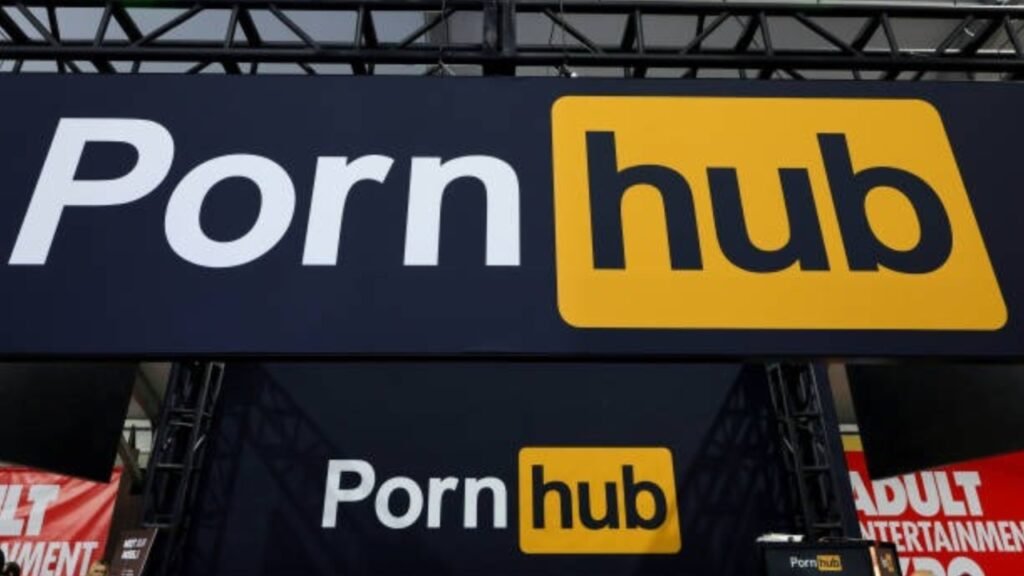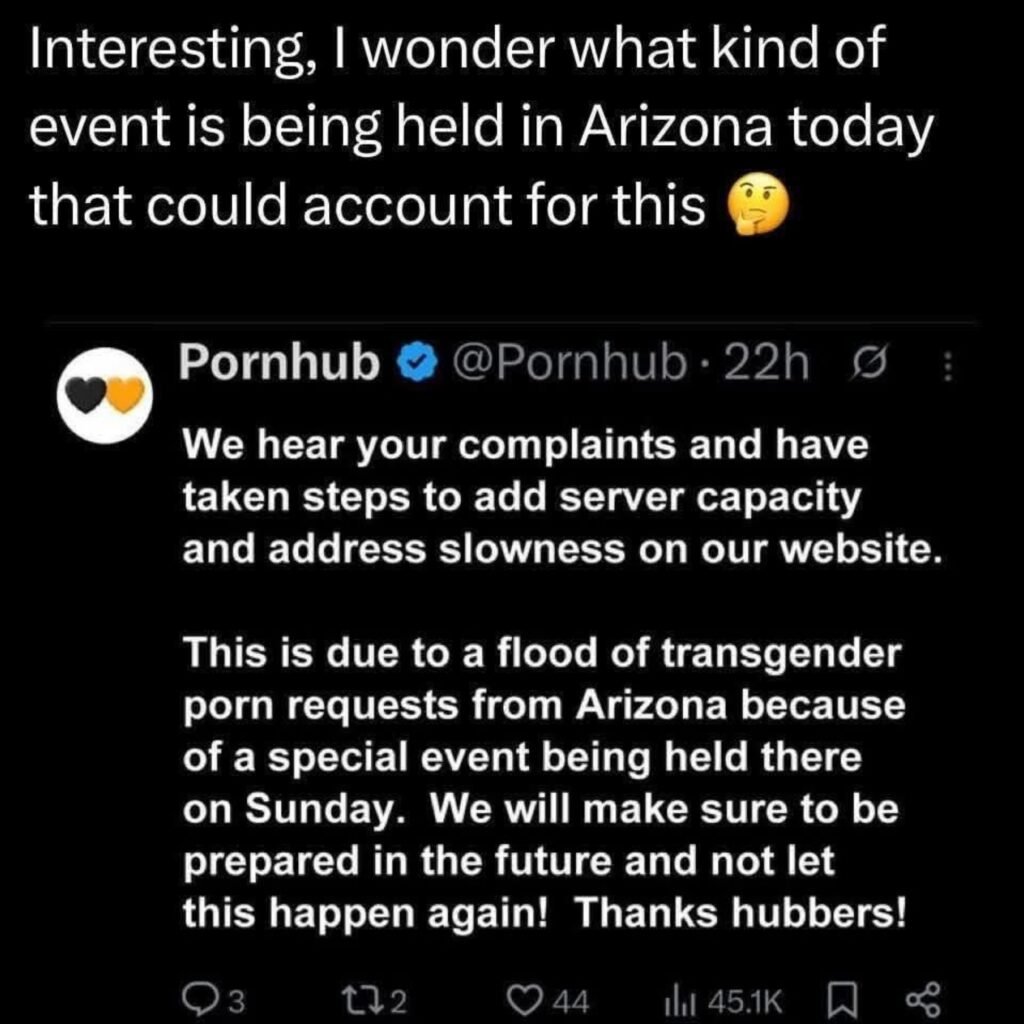A bizarre claim is spreading online across varied social media platforms, suggesting that Charlie Kirk’s funeral attendees somehow crashed the servers of PornHub.
This entire claim that started to draw public attention quickly, brought ahead not just some new controversy but also confusion. While the claims are getting traction, their credibility is being sharply questioned. It raises a need to answer the question or clarify the claims.
Here is all we know about the circulating post and whether or not it is true.
Is the viral post of Charlie Kirk funeral participants crashing PornHub servers true?

The conversation started as an online post alleged that, “Charlie Kirk funeral participants literally crashed PornHub servers,” due to some unusually high traffic coming from Arizona. As per the post, the surge was linked to a surge in tr@**gender p0rn0graphy searches during the event on Sunday. These claims immediately set social media buzzing.

In the comments, a user posted a screenshot where a wondering user questioned, “what kind of event is being held in Arizona today that could account for this.” In the same screenshot, there was also a reply coming from PornHub.
While the authenticity of this comment coming from PornHub couldn’t be verified, the comment read, “We hear your complaints and have taken steps to add server capacity and address slowness on our website.”
“This is due to a flood of transgender p*rn requests from Arizona because of a special event being held there on Sunday. We will make sure to be prepared in the future and not let this happen again! Thanks hubbers!” the post further read.
The bigger picture of these viral claims
Amidst all the chaos of viral claims, news that was made available just hours back suggests that Arizona is preparing for a significant policy shift on adult content availability.
Beginning from September 26, 2025, Arizona law will now require all p*rn*graphic materials (or anything that is deemed to be “harmful for minors”) publishers to implement digital identification or have a commercial age-verification system.
To put it simply, to access explicit material will now resemble buying alcohol or cigarettes, with proof of age needed before entry to a website.
The new law has even introduced newer and stricter penalties for non-compliance. Parents who discover their sites fail to prevent access for underage users can seek damages $10,000 a day.
Above it, any violation that leads to minors accessing explicit material can draw fines up to $250,000. As per advocates, it is a huge step towards child protection. Critics, though, argue that it will expose adults to constitutional concerns and privacy risks.
How did PornHub respond to this new change?
For PornHub, compliance is now a sticking point. Aylo, its parent company, has announced that, instead of risking identity security issues, the platform’s access from Arizona will be blocked entirely.
The company officials have argued that the new requirements are compelling adult sites to collect a lot of sensitive information. As per them, it puts user safety in jeopardy, despite the assurances being received that data will not be retained.
Though state lawmakers like Rep. Nick Kupper, the bill’s author, insist that this law would shield children while reducing risks. Kupper has thereby dismissed the decision of PornHub for blocking the platform.
It’s been framed by him as companies that are giving priority to convenience instead of child protection. As per reports and him, safeguards definitely outweigh the inconvenience to the adult users.
Balancing protection and privacy
Arizona’s new regulation supports maintaining that a child shouldn’t be able to sidestep the age barriers with just a simple question asking if they are 18, through a prompt on the adult platforms. While the opponents are arguing that the state has overstepped, lawmakers are firm. They point to public pressures surrounding the online content exposure.
Ultimately, irrespective of whether the funeral of Charlie Kirk really caused the servers of PornHub to crash, something which is highly unlikely, the reality behind the scenes is larger. Arizona is now quickly moving to reshape censorship, privacy and where boundaries between freedom and safety must be.
